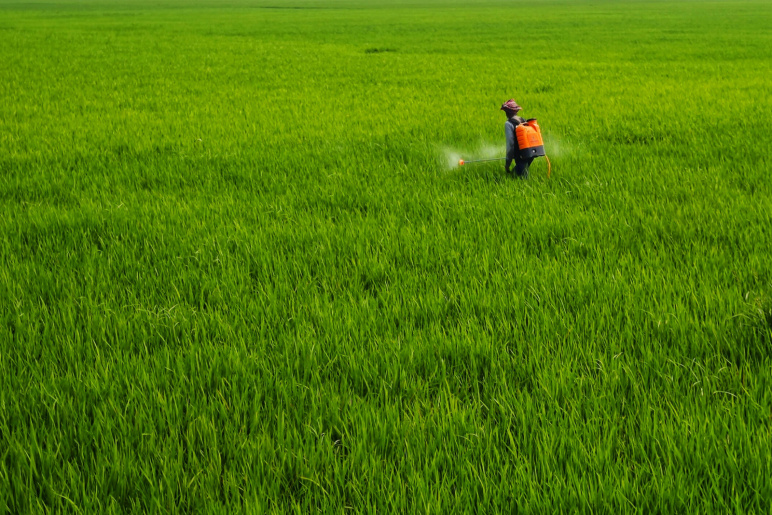Our Research Stable, low-cost engineered proteins as biofungicides

The most commonly employed disease-control strategy in the field involves the use of chemical fungicides, which are not only associated with human and environmental risks but can also result in strong resistance. Photo credit: Dibakar Roy from Pexels.
Principal Investigator
Hadley D. Sikes
- Willard Henry Dow Professor
- Department of Chemical Engineering
Hadley D. Sikes is the Willard Henry Dow Professor and Graduate Officer in Chemical Engineering at the Massachusetts Institute of Technology. She advises a team of researchers in the application of physical principles to design, synthesize, characterize and test molecules for utility in detecting and understanding disease. Hadley earned degrees in chemistry, a BS at Tulane University and a PhD at Stanford University, and trained as a postdoctoral scholar in chemical engineering at the University of Colorado, Boulder, and at the California Institute of Technology prior to joining the faculty at MIT.
Challenge:
Can we replace chemical fungicides with a low-cost, eco-friendly alternative?
Research Strategy
- Identify pathogen-specific proteins that play a crucial role in fungal development and pathogenicity to plants
- Develop a biofungicide that protects food crops from fungal infections using engineered binding proteins
- Validate the effectiveness of the protein-based biofungicide using infected plants
Project description
Fungal diseases impact many forms of life. Unlike bacteria and viruses, which dominate as human disease pathogens, fungi have historically received little attention. Unfortunately, these understudied microbes are the major agents of disease in food crops. Fungal attacks on staple crops—such as rice, corn, and wheat—threaten global food security, which is already under increasing pressure from a growing population. Current fungal management strategies in agriculture rely heavily on the use of chemical fungicides, which contribute substantially to the cost of producing crops and can be highly toxic to a broad range of organisms, including humans. Moreover, repeated use of fungicides in agriculture has led to the emergence of fungicide-resistant pathogens, making fungicide products less effective or even useless. This research team aims to engineer a novel and safe class of biological fungicides as an affordable and eco-friendly alternative to combat fungal plant pathogens.
News
Additional Details
Impact Areas
- Food
- Climate & Sustainability
Research Themes
- Sustainability & Adaptation
- Soil Fertility & Crop Productivity
Year Funded
- 2025
Grant Type
- Seed Grant
Status
- Ongoing

